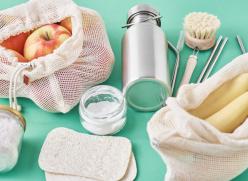Plastic Free July

Every year, summer brings the global movement, Plastic Free July. Millions of people across the globe take part in doing their bit to reduce plastic pollution.
The problem with plastic
Our reliance on plastic has a multitude of issues including:
- using raw materials to produce plastic; these are finite and increase our reliance on oil
- the litter plastic causes in the environment, both on land and in marine ecosystems
- the creation of micro-plastics when plastics breakdown. These have started causing issues in the food chain
- plastic’s single-use nature; it has a very short lifespan once it is created and then it is quickly thrown away
- plastic takes a very long time to break down in landfill, sometimes thousands of years. This doesn’t bode well for the limited space we have in landfill
The problem in Essex
In Essex, the recycling rate is around 50%, which is higher than the national average, however, this still fluctuates, and much of what could be recycled by residents is still sent to landfill.
In support of the Council’s strategic aims and the draft Waste Strategy for Essex, we want to embrace the principles of the circular economy and adoption of the waste hierarchy, ensuring a cohesive approach to managing waste across Essex which enables people to reduce waste and recycle more. This is so we can reduce the impact on our environment when dealing with the things residents throw away.
How you can help and say no to single-use plastics
Here are some everyday ideas to get you started:
- grab your morning coffee to go in a reusable mug – it’s often cheaper than a single-use cup too
- choose loose in supermarkets – this can also help to reduce food waste as you are more likely to only buy what you need
- bring a reusable shopping bag with you instead of buying a plastic one
- refuse plastic straws or bring your own reusable ones
- bring a refillable water bottle with you when you’re out and about, there are plenty of free refill spots too
- reduce your plastic consumption, reuse what you have and recycle what you do use
- choose products (food, cleaning, toiletries) contained in aluminium, cardboard, and glass instead, as these can be easily recycled
- make use of refill shops instead of buying lots of smaller items individually wrapped in plastic
- buy clothes made with natural fibres to reduce microplastics being leached into the environment
- if you menstruate, give reusable period products a try
- if you are a parent, try cloth nappies as part of your routine
For more simple tips and tricks to reduce your plastic consumption and waste, head to our plastics page and the official Plastic Free July page.
